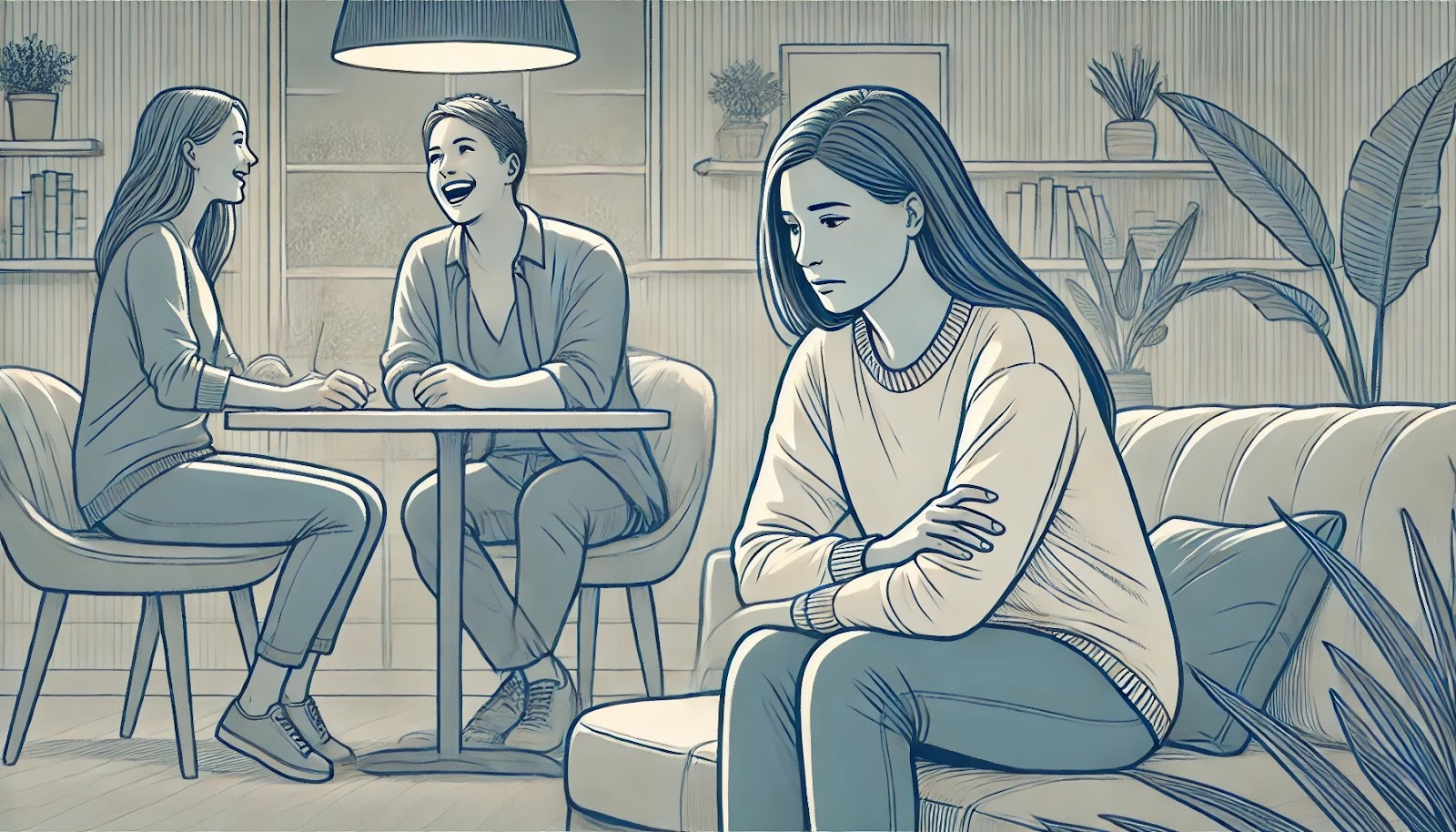Key Takeaways
- Recognizing the early signs of psychosis such as behavioral shifts, unusual thoughts, and altered perceptions can lead to timely intervention and significantly improve treatment outcomes.
- Social withdrawal from friends and family, emotional variations (from mood swings to emotional flatness), and increasing paranoia or distrust are important indicators that should not be ignored.
- Declining personal hygiene, difficulty concentrating, and disrupted sleep patterns often accompany early psychosis and should be monitored carefully.
- Seeking professional help at the first signs of psychosis helps in reducing symptom severity and improving long-term outcomes.
- A Mission For Michael (AMFM) provides specialized care for psychosis using evidence-based approaches that include therapy, counseling, and medication management.
9 Common Early Indicators of Psychosis
Psychosis is a condition that affects the way your brain processes information, leading to a disconnect from reality. Recognizing the indicators early can make a significant difference in the outcome.
Here are some early signs of psychosis that should be taken seriously.
1. Subtle Behavior Shifts
One of the first signs that something may be amiss is subtle shifts in behavior. These changes might seem minor at first but can escalate if left unchecked. You might notice a decline in your performance at school or work. Perhaps tasks that once seemed easy now feel overwhelming.

For example, a person who was always conscious of their look might start neglecting their personal appearance. This decline in self-care is often one of the earliest indicators that something is wrong.
Founded in 2010, A Mission For Michael (AMFM) offers specialized mental health care across California, Minnesota, and Virginia. Our accredited facilities provide residential and outpatient programs, utilizing evidence-based therapies such as CBT, DBT, and EMDR.
Our dedicated team of licensed professionals ensures every client receives the best care possible, supported by accreditation from The Joint Commission. We are committed to safety and personalized treatment plans.
2. Unusual Thoughts
Unusual thoughts and beliefs can manifest as a preoccupation with certain ideas or an inability to distinguish between reality and imagination. You or someone you know might develop strong beliefs in things that are clearly not true.
These thoughts can become all-consuming, making it difficult to focus on anything else. These beliefs are not rooted in reality and can often seem bizarre or irrational to others.
For instance, someone might start believing they have special powers or that others are plotting against them. These delusions are a hallmark of psychosis and should not be ignored.
3. Altered Perceptions
This can include experiencing hallucinations, which are sensory experiences that appear real but are created by the mind. Hallucinations can affect any of the senses, but auditory hallucinations, such as hearing voices, are most common.
These altered perceptions can be incredibly distressing and confusing. Imagine hearing a voice that no one else can hear, or seeing things that others can’t see. It’s an experience that can leave you feeling isolated and frightened.
4. Withdrawal from Friends and Family
You might notice someone pulling away from friends and family, avoiding social activities they once enjoyed. This social isolation can stem from feelings of anxiety, paranoia, or simply a lack of interest in social interactions.
Reach out and offer support if you notice someone is withdrawing. Encourage them to talk about their feelings and seek professional help if needed.
5. Emotional Variations

Emotional changes can range from sudden mood swings to a complete lack of emotion. You might notice someone becoming unusually irritable, anxious, or depressed.
On the other hand, they might seem emotionally flat, showing little reaction to events that would typically elicit a response. This emotional blunting can be just as concerning as extreme emotional reactions.
Understanding that these changes are part of a larger issue can help in seeking the right support.
6. Distrust or Paranoia
Distrust or paranoia is another early warning sign of psychosis that can significantly impact daily life. You or someone else might become increasingly suspicious of others without any logical reason. This can manifest as a belief that others are talking about you, plotting against you, or have ill intentions.
These feelings of paranoia can create a barrier between you and those around you, leading to isolation and difficulty in maintaining relationships. Recognize that these feelings are not based in reality, even though they may feel very real to the person experiencing them.
7. Poor Hygiene
You might observe someone neglecting their home, wearing dirty clothes, or failing to clean regularly. This change in hygiene is often a result of decreased motivation or the inability to focus on daily tasks.
Approach this issue with empathy and understanding, as the person may not be fully aware of these changes or may feel overwhelmed by the thought of addressing them. Encouraging them to seek help can be a positive step towards regaining control over their personal care.
8. Difficulty Concentrating
Tasks that once seemed simple can become challenging, and it may be hard to focus on work, school, or even conversations. This lack of concentration can lead to frustration and a sense of being overwhelmed.
Difficulty concentrating can also affect memory and decision-making abilities. You might find yourself forgetting important details or struggling to make choices that once seemed straightforward. Recognizing these changes and seeking support can help in managing these cognitive challenges.
9. Sleep Pattern Changes
Sleep disturbances are another early sign of psychosis. You might experience insomnia, where it’s difficult to fall asleep or stay asleep, or hypersomnia, where you sleep excessively. These changes in sleep patterns can exacerbate other symptoms, making it harder to cope with daily life.
Besides that, irregular sleep patterns can affect mood and energy levels, contributing to feelings of anxiety or depression. Establishing a regular sleep routine and seeking professional help can be beneficial in managing these sleep-related issues.
Taking Action on Early Signs
Importance of Early Intervention
The sooner you seek help, the better the chances of reducing the severity of psychosis symptoms and improving long-term outcomes.
By addressing the signs early, you can access treatments and therapies that are designed to manage symptoms effectively. These may include medication, therapy, or a combination of both, customized to meet individual needs and help you regain control over your life.
Consultation with Mental Health Professionals

Consulting with a mental health professional helps in managing early psychosis. They can provide a thorough assessment and recommend appropriate treatment options.
Mental health professionals, such as psychologists, psychiatrists, or counselors, have the expertise to guide you through the process of understanding and managing the condition.
By taking action, you are taking control of your mental health and paving the way for a brighter future.
Available Support Resources
Local mental health clinics often offer services customized to individuals experiencing early psychosis. These clinics can provide assessments, therapy, and medication management, all under the guidance of experienced professionals.
Additionally, support groups can be a valuable resource. Connecting with others who are experiencing similar challenges can provide comfort and insight. These groups often offer a safe space to share experiences and learn coping strategies from peers.
AMFM: Your Partner in Psychosis Treatment and Recovery

At A Mission For Michael, we’ve seen how subtle behavior shifts, unusual thoughts, concentration difficulties, sleep disturbances, and changes in functioning can signal the onset of psychosis.
That’s why we’ve established comprehensive treatment centers across California, Virginia, and Washington, staffed with multidisciplinary teams of professionals dedicated to providing personalized care.
Our approach goes beyond symptom management – we treat the whole person. From residential programs to outpatient services, we offer evidence-based therapies, medication management, and family support customized to your unique needs. Our compassionate team understands how frightening psychosis can be, both for those experiencing it and their loved ones.
Don’t wait until symptoms worsen. Contact AMFM today for a confidential, free mental health assessment. Together, we’ll develop a treatment plan that helps you or your loved one reconnect with reality and regain control. Recovery is possible.
Frequently Asked Questions (FAQ)
What is the first sign of psychosis?
The first sign of psychosis often involves subtle changes in behavior or thought patterns. This can include difficulty concentrating, social withdrawal, or unusual thoughts and beliefs.
How is psychosis identified?
Psychosis is identified through a comprehensive assessment by a mental health professional. This assessment typically involves interviews, questionnaires, and observations to evaluate symptoms and determine the best course of action.
Can psychosis go away on its own?
While some symptoms of psychosis may improve over time, it is unlikely to resolve completely without intervention. Early treatment can help manage symptoms effectively and prevent the condition from worsening.
Are there risk factors for developing psychosis?
Yes, several risk factors can contribute to the development of psychosis. These include a family history of mental illness and significant stress or trauma. Understanding these risk factors can help in early identification and prevention.
What treatment options does AMFM offer for psychosis?
A Mission For Michael offers comprehensive treatment programs for psychosis. We provide evidence-based therapies including individual psychotherapy, supportive counseling, medication management, and family therapy – all delivered by experienced mental health professionals in a compassionate environment.












